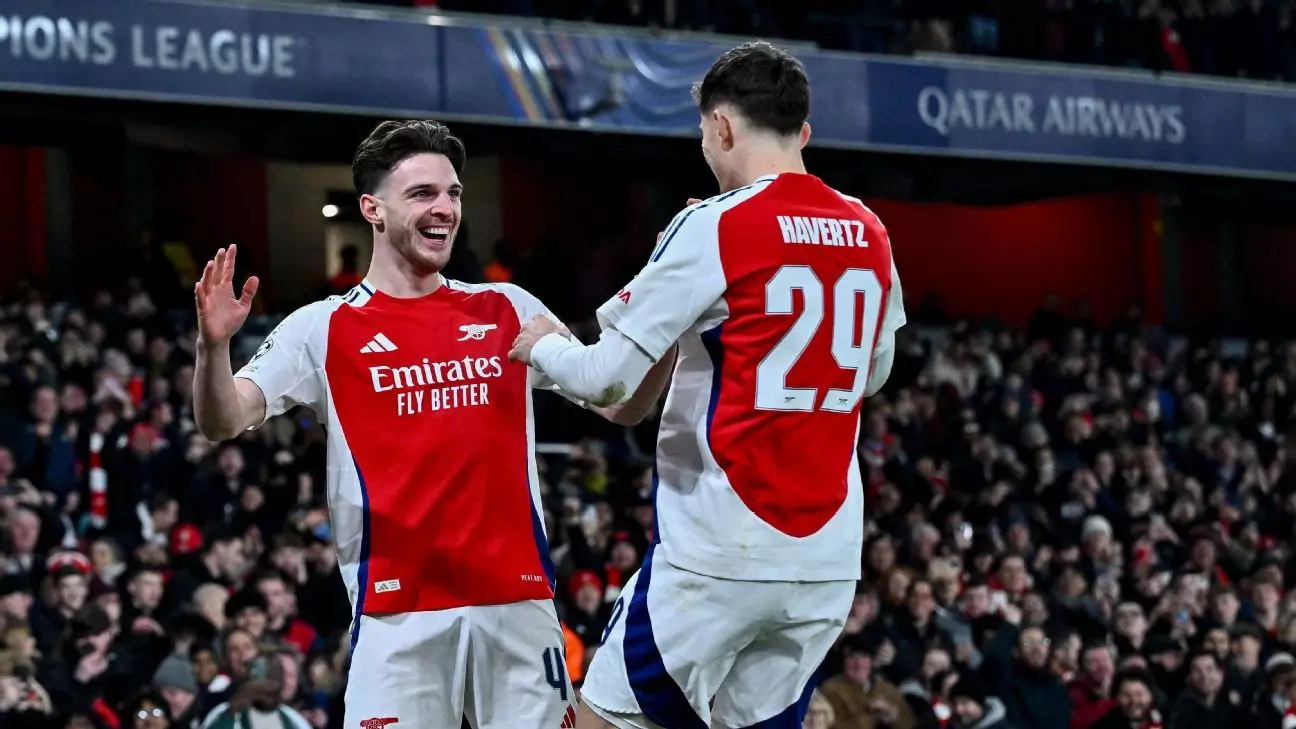Arsenal’s recent 3-0 victory over Dinamo Zagreb served as more than just a sporting triumph; it highlighted the intriguing dynamics brought forth by the new Champions League format. This season, the latest restructuring has introduced a 36-team group stage, replacing the traditional eight groups of four teams. The transition, while initially met with skepticism and confusion, appears to be gaining favor among players and fans alike. Declan Rice, a key midfielder for Arsenal, articulated this sentiment well as he praised the new design, calling it “really, really good.”
With each team facing a variety of strong opposition, the potential for emerging rivalries and unexpected matchups adds an exciting layer to the competition. Rice’s enjoyment of playing against renowned teams showcases how this format is elevating the experience for players. It pushes teams to adapt and evolve—an essential component in maintaining competitive integrity on the European stage. As Arsenal has now secured a solid position in the group, the tactical approaches employed by their coach Mikel Arteta will only become more strategic moving forward.
On the pitch, Arsenal has a lot to look forward to. With Rice contributing significantly to their success—evidenced by his goal in the match—Arsenal has made a strong case for themselves in this revamped tournament format. The win not only guarantees a near-certain top-eight finish but also reflects the team’s cohesive effort. Arteta’s praise of his squad for maintaining a clean sheet is not only a testament to their defensive organization but also highlights the multifaceted nature of their game strategy.
Furthermore, players like Kai Havertz and Martin Ødegaard capitalizing on opportunities showcases the squad’s depth. Having multiple players contributing to the scoreline not only relieves the pressure on individual players but also presents a diversified threat to their opponents.
The absence from the FA Cup introduces an opportunity for Arsenal to recharge during the winter, allowing them to refine their tactics and minimize fatigue. Arteta’s acknowledgment of this strategic maneuvering underlines how vital it is for teams to use every available advantage in such a grueling schedule. The reality of competing in the Champions League is as demanding as it is exhilarating, and Arsenal seems poised to navigate this challenge head-on.
The new Champions League format is enriching the competitive landscape of European football, offering not just a shift in structure but a new paradigm in how teams engage with the tournament. With players like Declan Rice providing positive feedback and performances like Arsenal’s showcasing the success of adaptive strategies, the league appears to be set on a thrilling course. As teams brace for the knockout phase, fans are left wondering—what surprises does this new format hold for the future?

